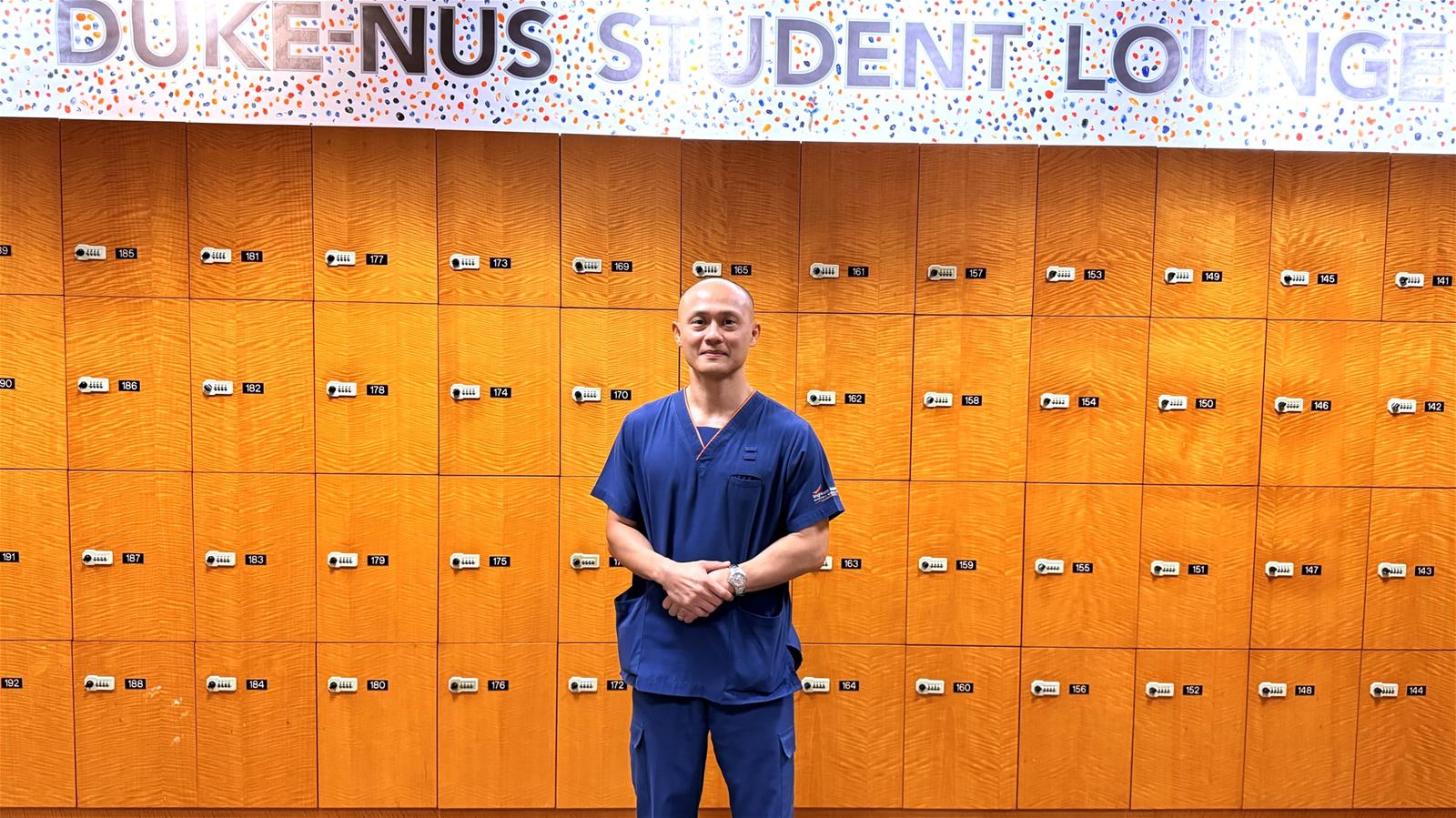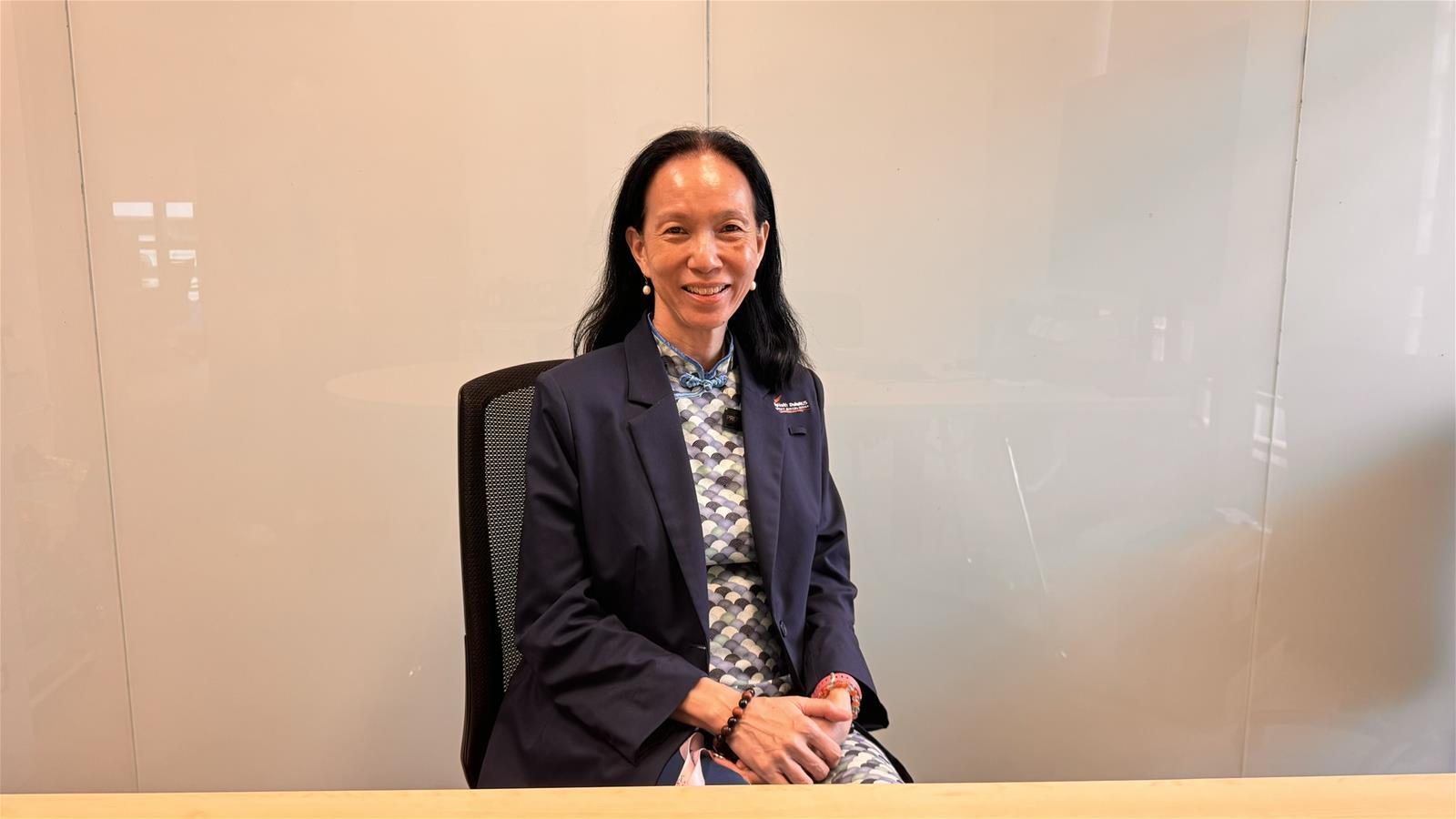Back
Friday, 30 Aug, 2024
College masters at Duke-NUS cultivate the art and heart of medicine
At Duke-NUS, the journey into medicine transcends theory and knowledge. To support students along this journey, a group of 12 dedicated individuals have stepped into the role of guides or college masters as they are called at the School, weaving wisdom, empathy and humour into the fabric of our students’ education; nurturing not just minds, but also the hearts of those who will shape the future of healthcare. In doing so, the college masters join the diverse ranks of educators and teachers who are being celebrated today at schools, colleges, polytechnics and universities across the country.
While the title may seem enigmatic, Professor Ong Biauw Chi, college master to Seah Cheng Siang College, brings it into vivid focus: “Basically, I mother hen the students.”

Professor Raymond Ng credits “lots of contact time” as essential to his relationship with the students. “We see them every week, and the nice part about the Duke-NUS system is that there are ‘families’ within each college, where students from every level who are with the college master go out together and have dinner.” (Credit: Sean Firoz, Duke-NUS)
Beyond academic oversight, her role as college master is about mentorship, guidance and fostering a unique environment where students can thrive. Prof Ong’s approach lies in encouraging students: “As a college master, we’re here to guide, share experiences, listen to them and maybe open some doors to helping the students achieve what they want.”
Like Prof Ong, Professor Raymond Ng, college master to Gordon Arthur Ransome College, likens his role to being a father figure. “It’s very satisfying—it’s like being a father again,” he chuckles.
Calling the role “largely pastoral”, Prof Ng has embraced the role for nearly a decade, finding joy in guiding students through trials and triumphs, from the professional to the personal. Despite occasional challenging situations, the majority of his experience has been fulfilling and enjoyable.
Seah Cheng Siang College and Gordon Arthur Ransome are two of four colleges at Duke-NUS, all named after medical luminaries. The colleges provide a home base and support for individual students, as well as opportunities to connect across year groups. During students’ first year, weekly college meetings allow the students to know and be known by their college masters and by their fellow college members for mutual support.
During these early meetings, Prof Ong also feels an obligation to prime the first-year students for the expectations they will face, both at Duke-NUS and in the larger practice of medicine, from law to regulations, ethics, or just as part of a community of practitioners.
Connecting through changes and challenges
Building rapport is central to the role of college master, and it’s a process that requires patience and empathy. Prof Ong explains that establishing a connection involves giving the students space and time to express themselves.
“I don’t say, ‘Do whatever you like’—but establish broad frameworks, so that the students can take ownership of their own learning and development, with guidance,” she said.
But she’s also keenly aware that these connections can be very student and master dependent.
“Sometimes, certain personalities mesh better together, which is why all colleges have two or three college masters,” she notes. She prioritises a balance of listening and providing guidance—understanding when to offer support and when to step back.

Professor Ong Biauw Chi encourages everyone who has a willingness to spend time, effort and energy to nurture students to come forward, as it is often difficult to convince people to be college masters. Part of it, she says, is that it’s seen neither as a rigorous science nor as recording time in the education field—“It’s not easy to get people to show up and stay the course.” (Credit: Sean Firoz, Duke-NUS)
Prof Ng also values empathy as a cornerstone of his mentorship. He acknowledges that bridging the generational gap is crucial to building trust with students.
“The level of disclosure depends on their comfort with me,” he says. “Some things are just too personal to confide, for instance, like relationship issues. Sometimes it can be embarrassing to approach your college master.” While some topics might be too personal for students to share, Prof Ng aims to be a reliable presence they can turn to when needed.
In other cases, notes Prof Ong, there are some things that are not in her purview, or that she doesn’t feel comfortable handling. “When I get a text like that, I’ll ask the other college masters, hey, you want to take care of this one?” This teamwork ensures that students receive the best possible care suited to their concerns.
And supporting students is an effort that goes beyond the college masters. Prof Ng acknowledges that while he plays a significant role, there are many facets to student support. “Of course, there have been issues that are too complex for us to solve,” he admits. The School’s comprehensive support systems, including peer networks and welfare services, work in tandem with the efforts of college masters to address students’ needs.
“We’re just one cog in the wheel,” he said.
Bonds that last the test of time
One of the most heartwarming aspects of being a college master is the enduring relationships they build with their students. Prof Ong recounts a story about a former student who, after graduating, was pleasantly surprised to receive a message from her expressing concern: “‘I didn’t realise you were still interested,’ the student replied.”
Evidently, the bond between college masters and students, forged over years of goodwill and shared moments, endures. Both Prof Ong and Prof Ng still maintain close personal relationships with their past students. Believing that the relationship can be invaluable, even if the need for mentorship isn’t always apparent, Prof Ong asserts, “We’re still here. The relationship doesn’t end with graduation.”
Mr John Joson Ng (Class of 2027) who is from Gordon Arthur Ransome College, speaks of his time with Associate Professor Lai Siang Hui, another college master, with warmth.
“Dr Lai is a father figure to many international students in Duke-NUS. I appreciate all the times we’ve been invited to spend local holidays with his family over a shared meal.”
Born in the Philippines, Mr Ng spent his time there, as well as in Hong Kong and Singapore. His experience with Assoc Prof Lai has made Duke-NUS a home away from home for him.
College duties become an unexpected highlight in masters’ lives
Despite the attendant challenges, the rewards of being a college master are immense. Prof Ng finds great fulfillment in seeing students navigate their medical school journey and emerge successfully. His goal is to ensure that students look back on their time at Duke-NUS with fondness and a sense of accomplishment. “They might not feel it at the moment, but when they graduate, they’ll come back and say they miss exams and studying!” he laughs.
For Prof Ong, the most gratifying part of the role is her ongoing connection with students. She appreciates the informal, supportive atmosphere that allows students to feel at ease. “We’re pretty light-hearted, not the most formal people,” she says, attributing this relaxed approach to helping students open up and engage more fully with their mentors.
Prof Ng derives joy from watching students transition from nervous newcomers to accomplished graduates. “It’s almost like watching my kids go through kindergarten,” he quips. Seeing students don their graduation gowns and, later, running into them in professional settings adds an extra layer of satisfaction to his role. Prof Ng even adds that his role as a college master provides some exuberance in his daily life.
“Someone said to me, ‘Don’t you find this (being a college master) tiring?’ No, I said. Actually, it’s quite fun. It’s a good break from my actual job.”
At the core of being a college master is a profound sense of being committed to a worthwhile cause. Prof Ong and Prof Ng both find purpose in dedicating themselves to their students’ well-being and success. To them, they are connectors, facilitators, and yes, mother hens and father figures. Their work may often be behind the scenes, but its impact is deeply felt.